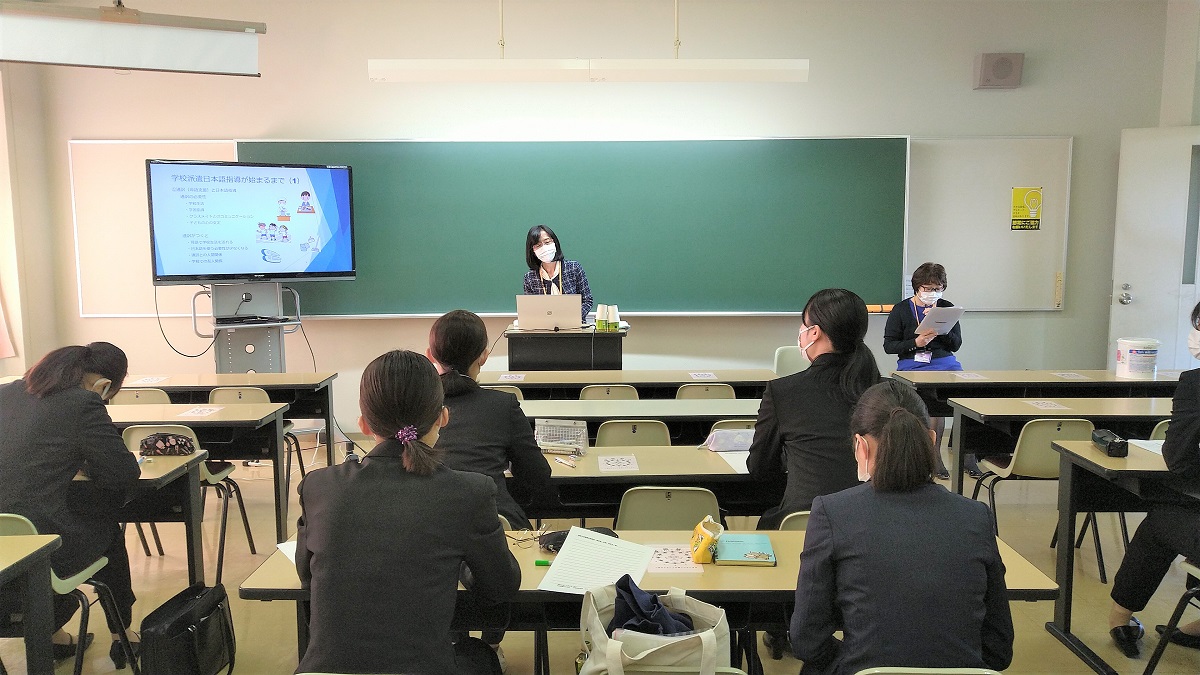
transferring or entering new schools is also increasing. Due to the difference of their
language, culture and lifestyle, misunderstanding or confusion is likely to occur at schools. Under these circumstances, AIRA gave a lecture on “How to Proceed with Japanese Language Education” at the request of Kawamura Gakuen Woman’s University. (No.21-12)
Date & Time: November 3rd (Wednesday, Japanese Culture Day) 8:50~10:20
Venue: Kawamura Gakuen Woman’s University
Attendants: 14 fourth-year students of Faculty of Education, Department of Child Education of Kawamura Gakuen Woman’s University
Instructors: Ms. Fumiko Kitajima and Ms. Noriko Osaki
AIRA started “the dispatch of instructors to schools for Japanese language education” in 2008 after some trials and discussions with the board of education of Abiko City in response to the request from parents who wanted help for their children who had difficulties in studying because of the lack of Japanese language abilities.
The students of “Practical Education Course” of the university may teach classes in the future where some of their students can’t understand Japanese, and through this lecture they learned about AIRA, which is supporting Japanese education in the community, as well as their actual activities.
The lecture was given under the theme of “Receiving foreigners and Japanese education” consisting of a theoretical and a practical part.
Ms.Kitajima in charge of the theoretical part explained, using Power Point, the dispatch of instructors to schools for Japanese education by both Abiko City and AIRA, including the report of the current situation of children with foreign roots as well as the guidelines of Ministry of Education.
Ms.Osaki gave a lecture as the practical part about “How to teach Japanese”, also using Power Point.
[The students’ impressions on the lecture]
・If I become a teacher, I’d like to think from the standpoint of children with foreign roots though it won’t be easy to teach them properly. I learned there are many people nearby who are supporting them. I hope to create places where children can feel relieved.
・I realized that in teaching Japanese it will be important to notice what children feel happy about in order to sympathize with them. Also, I found it important to seek for the topics and teaching materials which attract the children while creating relationship of mutual trust with them.
[The instructors’ comments]
・From the serious look of the students in the class, we understood their earnest wish to become a teacher and to learn a lot from our lecture.
・We will be happy if today’s lecture is useful even a little when the students teach children with foreign roots after they become teachers.
・We appreciate being given such an opportunity to tell the future teachers about the importance of supporting children with foreign roots.
(Translated by Katsumi Nakajima)
